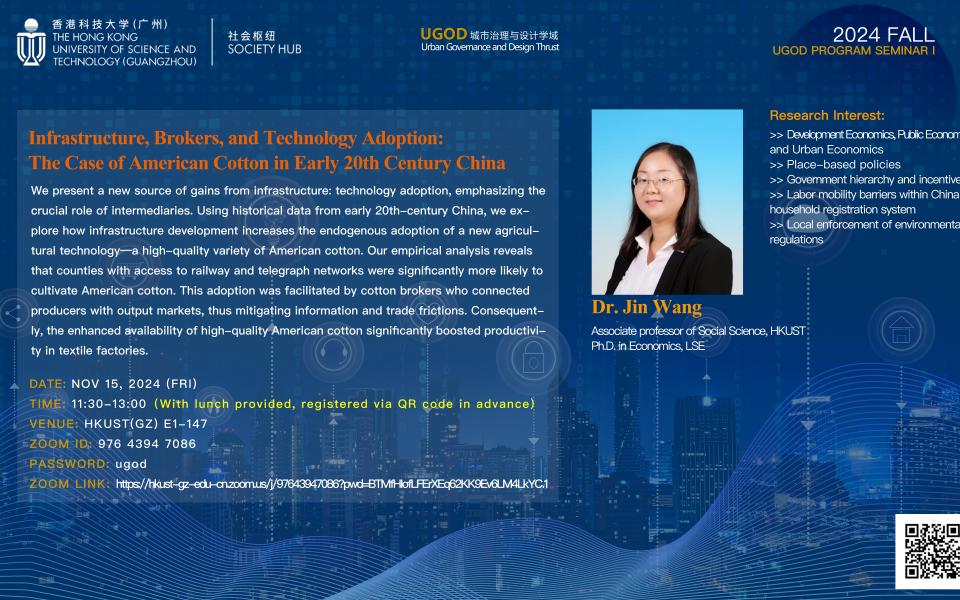UGOD Seminar | Infrastructure, Brokers, and Technology Adoption: The Case of American Cotton in Early 20th Century China
Supporting the below United Nations Sustainable Development Goals:支持以下聯合國可持續發展目標:支持以下联合国可持续发展目标:
We present a new source of gains from infrastructure: technology adoption, emphasizing the crucial role of intermediaries. Using historical data from early 20th-century China, we explore how infrastructure development increases the endogenous adoption of a new agricultural technology—a high-quality variety of American cotton. Our empirical analysis reveals that counties with access to railway and telegraph networks were significantly more likely to cultivate American cotton. This adoption was facilitated by cotton brokers who connected producers with output markets, thus mitigating information and trade frictions. Consequently, the enhanced availability of high-quality American cotton significantly boosted productivity in textile factories.
Jin Wang is an associate professor of Social Science at the Hong Kong University of Science and Technology. She earned her BA and MA in Economics from Tsinghua University and completed her PhD in Economics at the London School of Economics and Political Science. Her research focuses on Development Economics, Public Economics, and Urban Economics, addressing topics such as place-based policies, government hierarchy and incentives, labor mobility barriers within China’s household registration system, and local enforcement of environmental regulations. Her work has been published in the Journal of the European Economic Association, American Economic Journal: Economic Policy, Journal of Development Economics, Journal of Environmental Economics and Management, and Journal of Comparative Economics.
Please scan the QR code in the poster for registration by 14 Nov 12pm.
